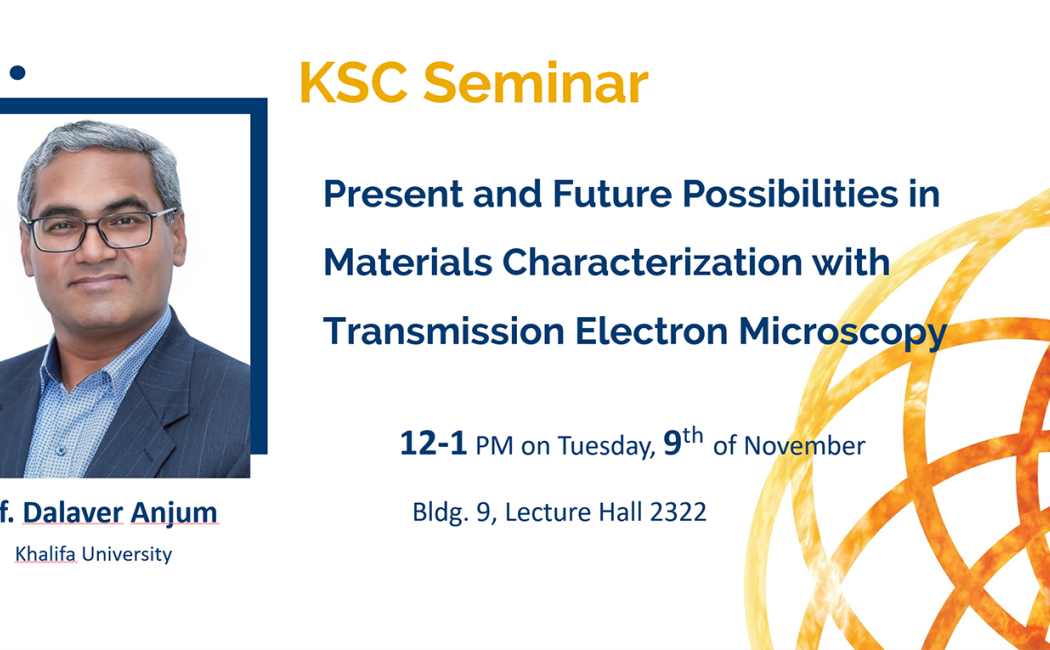KSC Seminar: Present and Future Possibilities in Materials Characterization with Transmission Electron Microscopy
Speaker: Prof. Dalaver Anjum from Khalifa University
Date & Time: Tuesday, November 9th, 2021 at 12:00 PM
Location: Engineering Science Hall (Building 9), Lecture Hall 2 (R 2322).
Abstract:
The progress in the quality of human-life is directly linked to the incorporation of “novel
materials into civilizations”. History shows that only a handful of materials namely stone,
bronze, iron, silicon, and the current nanomaterials comprise the list of “novel materials”. The
usage of each material dominated a certain era in the human activity. Therefore, each era was
labeled after the usage-dominating material. The current time is dubbed as the era of
nanotechnology or nanomaterials which cuts horizontally through all disciplines of science,
engineering, and technology. The nanoscale science plays a central role to the development of
nanomaterials for a specific application. Consequently, the establishment of the correlation
between their nano and bulk scale properties becomes an essential undertaking.
Transmission electron microscopy (TEM) is one of techniques that meets the requirement of
characterizing the materials in the above-mentioned range of dimensions. The capability of
TEM for imaging the materials at atomic scale and the simultaneous identification of imaged
atoms makes it one of the most versatile and powerful techniques in the realm of
NanoCharacterization. In this presentation, the salient features of a modern TEM instrument
will be presented along with examples. The underlying principles of different TEM-based
techniques will be introduced briefly. The role of materials characterization using TEM in the
ongoing research activity will be highlighted by presenting a few representative examples of
the TEM-analysis of materials from different fields. Similarly, the role of TEM in
characterizing the materials of the future will be brought into perspective with examples from
the next generations of materials. In conclusion, it will be demonstrated that TEM not only
enables studying the atomic structure and composition in nanomaterials at nano scale, but it
also allows investigating the fundamental material properties.
Bio:
Prof. Dalaver H. Anjum received his PhD Degree in Physics in the year of 2002 from the University
at Albany-Sate University of New York, Albany, New York, USA. Currently, he is working
as an Assistant Professor in the Department of Physics of Khalifa University, Abu Dhabi, UAE.
His main research interests include characterizing the structure and properties of materials at
nanoscales by using TEM. Overall, he has the experience of working in industry and academia.
With reference to Google-Scholar, he has authored/co-authored 250 publications with h-index
of 49 and total citations of 10,000. His research interests in the materials characterization with
TEM permeates to various fields of Science & Engineering including Solar Cell, Metallurgy,
Electronics & Photonics, Catalysis, Bioscience, Energy-Storage, Polymer Science, and Water
Desalination.


